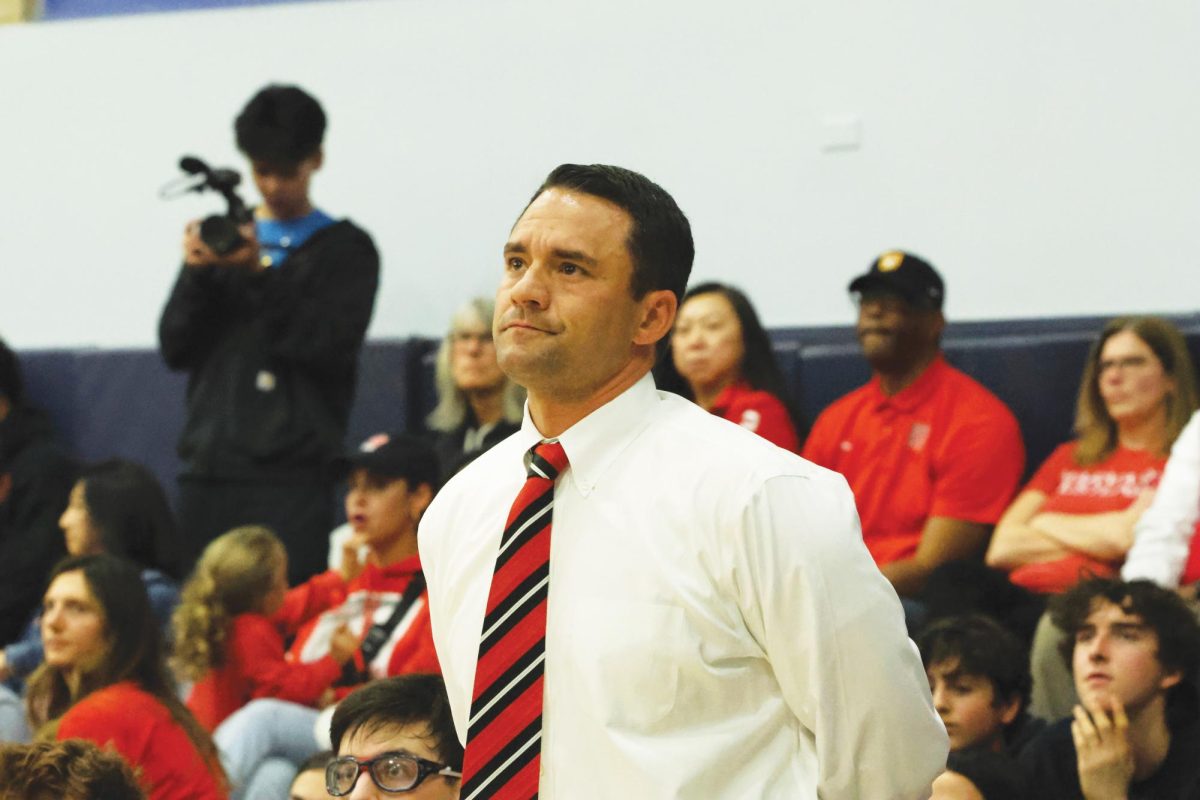By Nicki Resnikoff
Academy Award winning actor and womenâs rights activist Geena Davis told the Womenâs History Month Assembly today that there has been very little progress in womenâs rights and representation in media and the film industry.
The assembly started off with an introduction by members Martha Wheelockâs Gender Studies class and a video montage that included clips from some of Davisâ 18 films including the âAccidental Tourist,â âA League of Their Own,â and âThelma and Louiseâ as well as the TV show âCommander in Chief.â
Davis started off proclaiming that she had known since the age of three that she had wanted to be an actor. Davis explained that she uses the word actor to describe both male and females. The dictionary definition of an actor, according to Davis, is a person who acts. She explained that she doesnât feel the need for a separate word for females.
âI am a former waiter who became an actor,â she said.
Davis talked about noticing when she was younger that on TV, especially in her two favorite shows The Rifleman and Bonanza, there were no female characters. She attributed many cases of this to the âDead Mother Syndromeâ where the mother dies towards the beginning or is already dead at the start of a show or movie.
Davis also spoke about her struggle to be an actor. As hard as it was, she kept trying.
Her personal motto is âIf a person can do it, I can do it.â
As a struggling actor, Davis turned to modeling, joking that it was much easier to become a supermodel than an actress.
However, despite getting jobs as a model, including being on the cover of New Jersey Monthly, Davis had a âprofoundly bad self image.â
Davis finally found confidence in herself, she said, when she learned to play baseball for the 1992 movie âA League of Their Ownâ when a coach told her she had untapped athletic ability.
âI started to feel like it was okay to take up space in this world,â she said.
While she had previously thought of herself as uncoordinated, Davis went on to be a semifinalist archer to qualify for the 2000 Olympics.
âI have to be careful with what I get involved in, because I am going to want to go to the Olympics in it,â she joked.
Davis also discussed the gender inequality in films.
She was part of the most comprehensive research study of G-Rated films, which was aptly named âWhere the Girls Arenât.â
According to Davis, there is a 3:1 ratio of male roles to female roles in films and in G-Rated films crowds in group scenes are only 17% female.
âThe vast majority of females in these movies are stereotyped and oversexualized,â she said. âThey where the same amount of sexually revealing clothes in G-Rated movies as in R-Rated movies.â
Also, 37% of female roles in these movies were royalty or entertainers.â
âPeople think women will watch men, but men wonât watch women,â she said. âThat is an assumption I am trying to disprove.â





































